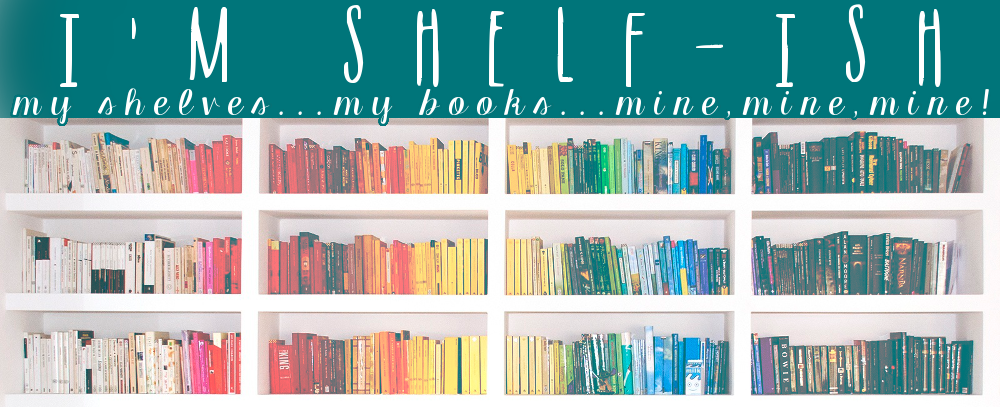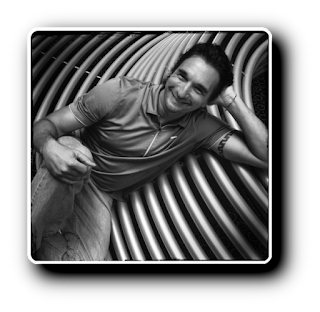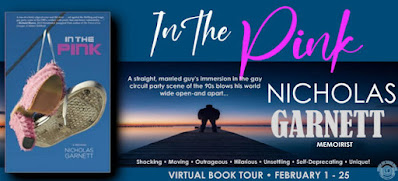Nicholas Garnett received his MFA in Creative Writing from Florida International University. He has taught creative writing at FIU, the Miami Book Fair, and Writing Class Radio. Garnett is also a freelance editor and co-producer of the Miami-based live storytelling series, Lip Service: True Stories Out Loud. He is a recipient of residencies from the Vermont Studio Center and the Woodstock Byrdcliffe Guild, and fellowships to the Norman Mailer Art Colony and Writers in Paradise. His writing has appeared, among other places, in Salon.com, Truehumor.com, Sundress Publication’s “Best of the Net” and Cleis Press’s Best Sex Writing.
His memoir, In the Pink, is forthcoming from MidTown Publishing in January 2022.
You can visit his website at www.nicholasgarnett.com or connect with him on Twitter and Facebook.

Thank you for this interview! I’d like to know more about you as a person first. What do you do when you’re not writing?
I work in my alma mater’s creative writing program, advising and teaching. I play the drums. I exercise. And I love and collect all things vintage, including jukeboxes, records and record players, and movies on film (which I play on my 16mm film projector).
When did you start writing?
I’m not one of those writers I see interviewed who say that they remember writing on the back of cereal boxes when they were six, or who finished their first novel at 16. I guess you could say I came to the party late. I read a lot, which I’ve learned is a common occurrence among writers. But the thing that got me writing creatively was that I had a very specific story to tell, one which I knew was unique. That didn’t happen to me until I was in my mid-forties. But once it happened, I couldn’t put the genie back in the bottle. I committed to a writing life, including going back to school for an M.F.A. in creative writing. At an age when most people are thinking about ending their professional careers, I started a new one. I have had my share of frustrations and disappointments, and yes, I wish I had started twenty years earlier, but the writing life has been transformative for me.
As a published author, what would you say was the most pivotal point of your writing life?
For me, nothing happened quickly. It took me years to write my memoir and years after that to get it published. In the meantime, I spent more years writing a novel. All in all, about a 15-year stint, filled with ups and downs. I can’t say there was a pivotal moment, after which everything changed. The way my manuscript came to the attentions of its publisher could have happened five or ten years ago—or never. There was no pivot, just the gradual realization that I was in it for the long haul, that I had to look past the rejections and near-misses and keep going. There were times I wanted to quit, but I could never answer the question: quit, and do what? I’d pretty much tried everything else. I think the arts are a game of attrition, designed to get you to quit. In many ways, the ones who succeed are the ones who just stay at it.
If you could go anywhere in the world to start writing your next book, where would that be and why?
Greece. My heritage is Greek, though I haven’t been back in a long time. But my memories of the place are so distinct. I’ve never seen a place that offers such a variety of national beauty, history, and a lifestyle so conducive to creativity.
If you had 4 hours of extra time today, what would you do?
Hit up Trader Joe’s, play my drums, lift weights, nap, then read.
Where would you like to set a story that you haven’t done yet?
Sometime in the not-too-distant future: the very last movie theater in operation.
Back to your present book, In the Pink, how did you publish it?
I began writing the story many years ago as a chronicle of what I always knew was an unusual situation: a straight guy immersed in a gay world. I was pretty good at writing vivid description. I could take a reader to the moment, the sights, and sounds. What I couldn’t do is convert an unusual situation into a story. What I mean by that is I didn’t know how to answer the question: so what? Only with time and distance could I begin to make sense of the story, which I came to see as a search for acceptance and belonging. The story became my MFA thesis and had a couple of literary agents interested enough to shop it around. It turns out that what was unique about the story—straight guy/gay world—made it difficult to place in a niche. After many rejections, I moved on, wrote a novel, and came to terms with the fact that In the Pink was never going to see the light of day. Then, a faculty member at my alma mater took an interest in the story, made some suggestions, and placed the manuscript in the hands of someone who got it and published it. I’ve just compressed more than 15 years of some ups and many downs into a paragraph.
In writing your book, did you travel anywhere for research?
I did plenty of traveling, though I didn’t realize at the time that it would serve as research! The circuit party scene of the 90s was a global phenomenon. My wife and our friends met up in Miami, New York, San Francisco, London, Amsterdam, Istanbul, Mykonos, and Rio de Janeiro. It would be a stretch to categorize our activities (as depicted in my book) as research, though. More like raw material.
Why was writing In the Pink so important to you?
The writer Robert Olen Butler claims that the fundamental element of good storytelling depends on what he calls the Unified Theory of Yearning. By yearning, he means the kind of desire that goes way beyond wanting. I can want money, sex, or a prestigious job, but yearning is what drives that desire. Butler claims, and I agree, that the most universal yearning is to find our place in the world, a place where we belong and feel accepted—where we can finally answer the question: WHO AM I? It’s what’s behind all kinds of “identity” movements of race, and gender, and religion. I believe it was Butler’s kind of yearning that attracted me to the world depicted in my memoir. And it’s that same yearning that, once I had discovered the world of writing and writers, attracted me to it, too. It had taken a while, but finally, I had found a place where I belonged. But still, without a published book, I felt like I was standing outside the club, waiting for the doorman to choose me. Getting published made me feel as though someone had finally lifted that velvet rope.
Where do you get your best ideas and why do you think that is?
The best ideas are a combination of our conscious interests and desires, combined with our unconscious fears and obsessions. I had a professor in my MFA program who had an edict regarding storytelling: only trouble is interesting. “Trouble” could be anything from physical danger to emotional distress—preferably both. So, if I start with a setting and a character that I’m interested in, figure out what they want and what they fear, then either block them from that desire and/or or shove their worst fear right in their face, I’m on my way. Of course, if you’re writing memoir, you’re applying this formula to yourself. That can be scary. But if you pull it off, you’ll probably have something that will keep the reader turning the pages.
Any final words?
Writing is hard. Writing a book-length story is the hardest thing I’ve ever done. If you think about the process too much, or get hung up on a timeline, you’ll either never finish or give up. Or both. For me, the hardest part of any writing project is starting. So, my advice (not that you asked for it) is: start!
Washed out of another corporate job, scraping by playing drums in a wedding band, delivering roses in a tuxedo. This was Nicholas Garnett’s version of the go-go 90s. Then, beautiful, worldly, Rachael turns his world upside down, introducing him to her gay friends who occupy the upper crust of the burgeoning gay circuit party scene. Nick and Rachael marry. They become known as the hot straight couple that party hardy with the boys in all he right places—until their friends self-destruct, Rachael burrows into addiction, the marriage implodes, and Nick is out on the street again. Follow his harrowing journey as he struggles to find his way in a life that’s been buried beneath a lifestyle.





No comments:
Post a Comment